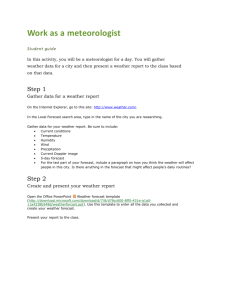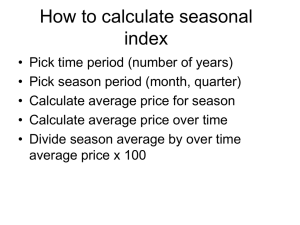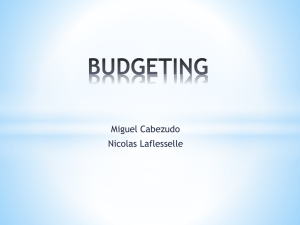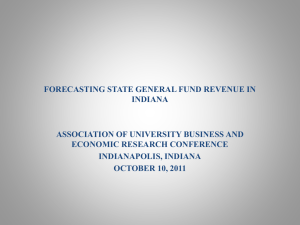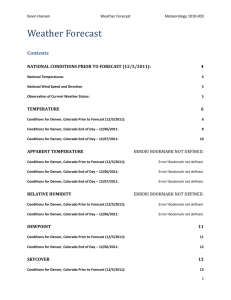Summary of June 20, 2012 State Economic and Review Forecast
advertisement
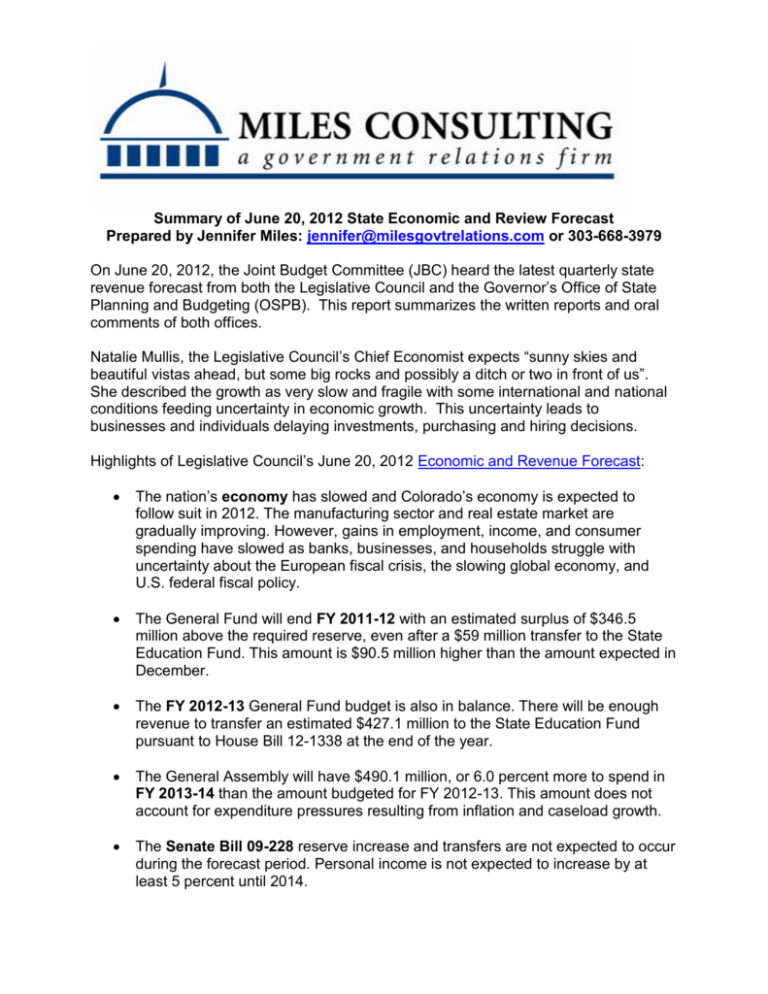
Summary of June 20, 2012 State Economic and Review Forecast Prepared by Jennifer Miles: jennifer@milesgovtrelations.com or 303-668-3979 On June 20, 2012, the Joint Budget Committee (JBC) heard the latest quarterly state revenue forecast from both the Legislative Council and the Governor’s Office of State Planning and Budgeting (OSPB). This report summarizes the written reports and oral comments of both offices. Natalie Mullis, the Legislative Council’s Chief Economist expects “sunny skies and beautiful vistas ahead, but some big rocks and possibly a ditch or two in front of us”. She described the growth as very slow and fragile with some international and national conditions feeding uncertainty in economic growth. This uncertainty leads to businesses and individuals delaying investments, purchasing and hiring decisions. Highlights of Legislative Council’s June 20, 2012 Economic and Revenue Forecast: The nation’s economy has slowed and Colorado’s economy is expected to follow suit in 2012. The manufacturing sector and real estate market are gradually improving. However, gains in employment, income, and consumer spending have slowed as banks, businesses, and households struggle with uncertainty about the European fiscal crisis, the slowing global economy, and U.S. federal fiscal policy. The General Fund will end FY 2011-12 with an estimated surplus of $346.5 million above the required reserve, even after a $59 million transfer to the State Education Fund. This amount is $90.5 million higher than the amount expected in December. The FY 2012-13 General Fund budget is also in balance. There will be enough revenue to transfer an estimated $427.1 million to the State Education Fund pursuant to House Bill 12-1338 at the end of the year. The General Assembly will have $490.1 million, or 6.0 percent more to spend in FY 2013-14 than the amount budgeted for FY 2012-13. This amount does not account for expenditure pressures resulting from inflation and caseload growth. The Senate Bill 09-228 reserve increase and transfers are not expected to occur during the forecast period. Personal income is not expected to increase by at least 5 percent until 2014. Henry Sobanet, the Director of the Governor’s Office of State Planning and Budgeting, indicated that his office made some similar assumptions and has remained conservative in their forecast due to concerns about slowing growth and a fragile economy. He also noted that Colorado has effectively saved funds from this current recovery period in the State Education Fund. These funds will be used later and/or will buffer us if the expected slow down in growth rate materializes. Summary of OSPB’s June 20, 2012 Budget and Fiscal Review: The June 2012 General Fund revenue forecast for the current budget year (FY 2011-12) is 3.2 percent, or $239.5 million, higher than the March forecast, mostly due to higher-than- expected individual and corporate income tax revenue. Revenue in FY 2011-12 is now estimated to increase 7.8 percent over FY 201011. This growth provides evidence that Colorado’s economy is performing better than the nation and has had more underlying strength than previously evident. General Fund revenue for the next budget year (FY 2012-13) will grow at rate lower than forecasted in March. The lower growth rate is due to the slowing global and national economies, heightened uncertainty and risks from the European crisis, and unresolved federal fiscal issues. Also, several factors contributing to income tax growth in FY 2011-12 will not be present in FY 201213. General Fund revenue in FY 2012-13 is expected to increase 1.0 percent, or $77.1 million. However, with the increase in the FY 2011-12 forecast, General Fund revenue is still projected to be $95.8 million, or 1.3 percent, higher in FY 2012-13 than projected in March. Under currently authorized spending levels, General Fund revenue will be $442.7 million above the required reserve amount in FY 2011-12 and $342.5 million above the requirement in FY 2012-13. Under current law, $59 million of the FY 2011-12 excess reserves and all of the FY 2012-13 excess ($342.5 million) is transferred to the State Education Fund. Cash fund revenue subject to TABOR will increase $125.7 million and total $2.5 billion in FY 2011-12, a 5.3 percent increase over FY 2010-11. For FY 2012-13, OSPB forecasts total cash fund revenue growth of only 0.2 percent. Although OSPB forecasts growth for all the main cash fund revenue sources next fiscal year, a 56.1 percent, or close to $100 million decline in severance tax revenue from the sharp drop in natural gas prices is causing the minimal overall cash fund revenue growth. The foundation of Colorado’s economy has grown stronger, with improvements in the long-struggling housing market, continued growth in jobs, increased energy production, export growth, and reduced household debt loads. The state also appears to be adapting better than many other regions to the increasingly dynamic, information-driven, and technology-intensive economy. At the national level, however, signs of weakening are becoming more apparent. Global growth has also slowed. Thus, OSPB is maintaining a cautious forecast for FY 2012-13. Colorado should continue to outperform the nation. However, if the current headwinds and downside risks abate, or if Colorado proves to be resilient against the national and global slowdown, the economy and thus revenue will perform better than forecast.

